BaEver feel like understanding education is like trying to catch a running train? One minute A-levels are the big cheese, the next there’s talk about this new kid on the block — the International Baccalaureate.
Just when you thought A-levels were the trusty ladder for your child to climb up to university, along comes the International Baccalaureate shaking things up.
A-levels vs. International Baccalaureate: The Ongoing Debate
According to a story reported by thedailymail.co.uk, there is currently an ongoing debate regarding the credibility of A-levels. It has been observed that the International Baccalaureate (IB) qualification may in fact be academically superior. As such, it is increasingly being viewed as the new gold standard for guaranteeing entrance to a reputable university.

Is the International Baccalureate academically superior to A-levels?
This was discovered by The Universities and Colleges Admissions Service in Britain, which has developed a new tariff system that gives the International Baccalaureate an A-level equivalence for the first time.
According to the news report, an IB score of 38 points out of a maximum of 45 (which is easily achieved by more than 200 pupils a year at a popular British school) is equivalent to five A grades at A-level. Prestigious universities such as Oxford and Cambridge usually ask for an International Baccalaureate score of 40 points, which is equal to five and a half A-level A grades. A relatively modest IB score of 35 points is worth four and a half A grades.
Which system — the IB or A-levels — will better equip your child to enter a prestigious university and cope with its academic demands? According to the report, even 30 IB points equates to three and a half A grades at A-level, which is enough to secure entry to most academically selective universities around the world.
What is the International Baccalaureate?
The IB is an international education programme that was founded in 1968 and is based in Geneva, Switzerland. The International Baccalaureate works with over 3,000 schools in 147 countries and offers 4 IB programmes to approximately 1,166,000 students around the world.

The IB programme prides itself on academic rigour and excellence.
Four Pathways of International Baccalaureate: Preschool to Pre-University
The International Baccalaureate offers four distinct programmes, each tailored to different stages of a student’s life, from preschool all the way up to pre-university years.
First and foremost, there’s the Primary Years Programme. Catering to students aged 3 to 12, it focuses on fostering holistic development, both in the classroom and in the world outside.
Following that, we have the Middle Years Programme. This is specifically aimed at students aged 11 to 16. It provides a blend of academic challenge and essential life skills, achieved through not just embracing, but also transcending traditional school subjects.
Subsequently, there’s the Diploma Programme, designed for students aged 16 to 19. This is a rigorous two-year curriculum leading to final examinations. The qualification earned is recognized by leading universities globally, making it a stepping stone to higher education.
Lastly, we have the newest addition to the IB family, the Career-related Certificate (IBCC). Also intended for students aged 16 to 19, the IBCC is specially designed for those who wish to engage in career-related learning, providing a practical approach to education.

The IB programme caters to children as young as 3 years old.
The International Baccalaureate programme prides itself on the quality of the education it offers which includes encouraging global-mindedness in all students. They do this by helping students nurture an understanding of their own cultural and national identity.
The IB also encourages a positive attitude towards learning by encouraging students to ask challenging questions, to critically reflect, to develop research skills and to participate in community service.

It’s never too early to start thinking about your child’s education.
It’s beneficial to understand educational options early, even when your child is young. This prepares you to guide them towards university entrance exams that align with their academic abilities and goals.
Here, we provide a brief overview of A-levels and the IB in Singapore to get you started.
Top International Baccalaureate Schools in Singapore
Canadian International School (CIS)

Source: Canadian International School (CIS)
-
Locations: Lakeside campus – 7 Jurong West Street 41, Singapore 649414; Tanjong Katong campus – 371 Tanjong Katong Road, Singapore 437128
-
Website: www.cis.edu.sg
-
Achievements: 99.2% pass rate in 2022, average score of 37, two students with a perfect 45.
Chatsworth International School
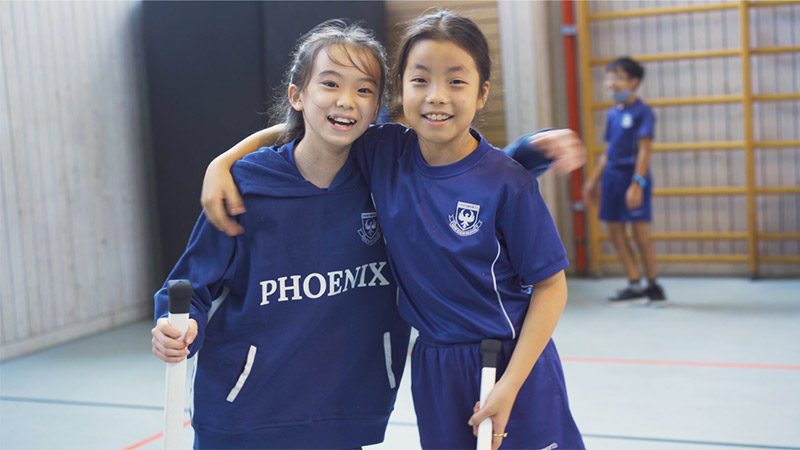
Source: Chatsworth International School
-
Location: 72 Bukit Tinggi Road, Singapore 289760
-
Website: www.chatsworth.com.sg
-
Achievements: Class of 2022 – Average score of 39, 100% pass rate for three consecutive years.
Dover Court International School
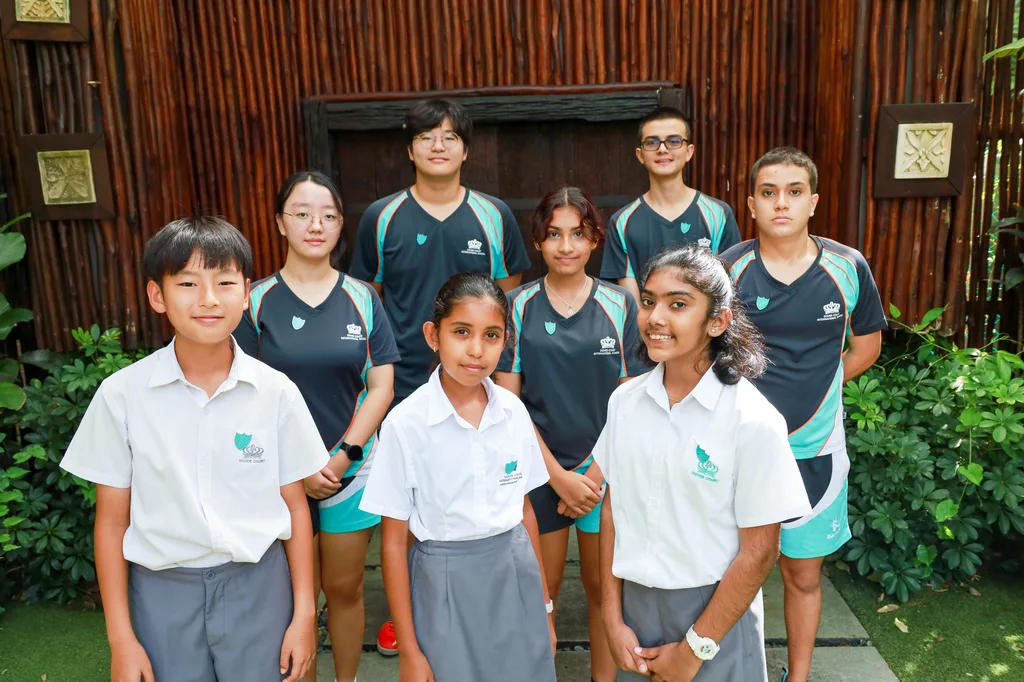
Source: Dover Court International School: Details, Fees and Reviews
-
Location: 301 Dover Road, Singapore 139644
-
Website: www.dovercourt.edu.sg
-
Achievements: 2022 cohort – Average score of 39, 100% pass rate, highest scores across the NAE group.
Dulwich College (Singapore)
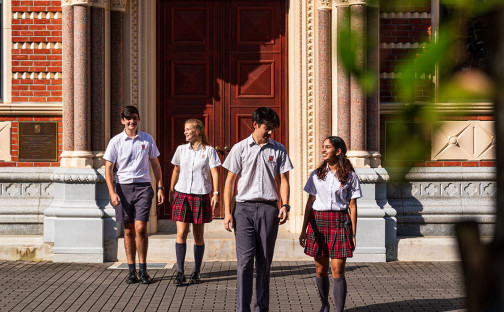
Source: Dulwich College (Singapore)
-
Location: 71 Bukit Batok West Ave 8, Singapore 658966
-
Website: singapore.dulwich.org
-
Achievements: 86 students, average score of 38.9, 100% secured first-choice university offers.
GESS – International School
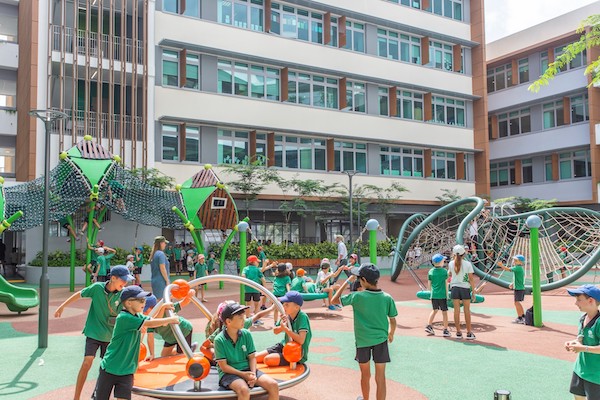
Source: GESS – International School Singapore
-
Location: 2 Dairy Farm Lane, Singapore 677621
-
Website: www.gess.sg/en
-
Achievements: 100% pass rate for two consecutive years, 35.3 cohort average score.
Global Indian International School (GIIS)

Source: Global Indian International School
-
Locations: SMART campus – 27 Punggol Field Walk, Singapore 828649; East Coast campus – 82 Cheviot Hill, Singapore 459663
-
Website: singapore.globalindianschool.org
-
Achievements: 38.6 school average in 2022, 10 students with a perfect 45/45.
Nexus International School (Singapore)

Source: Nexus International School (Singapore) (@NexusSchoolSG) / X
-
Location: 1 Aljunied Walk, Singapore 387293
-
Website: www.nexus.edu.sg
-
Achievements: Graduates received an average score of 36 points and a top score of 44. 49% of grades achieved were one grade above standardized predictions.
One World International School (OWIS)

Source: One World International School (OWIS)/Facebook
-
Location: Nanyang Campus, 21 Jurong West Street 81, Singapore 649075
-
Website: www.owis.org
-
Achievements: The second IBDP cohort of the school had a 90% pass rate and secured an average score of 34 points.
Overseas Family School
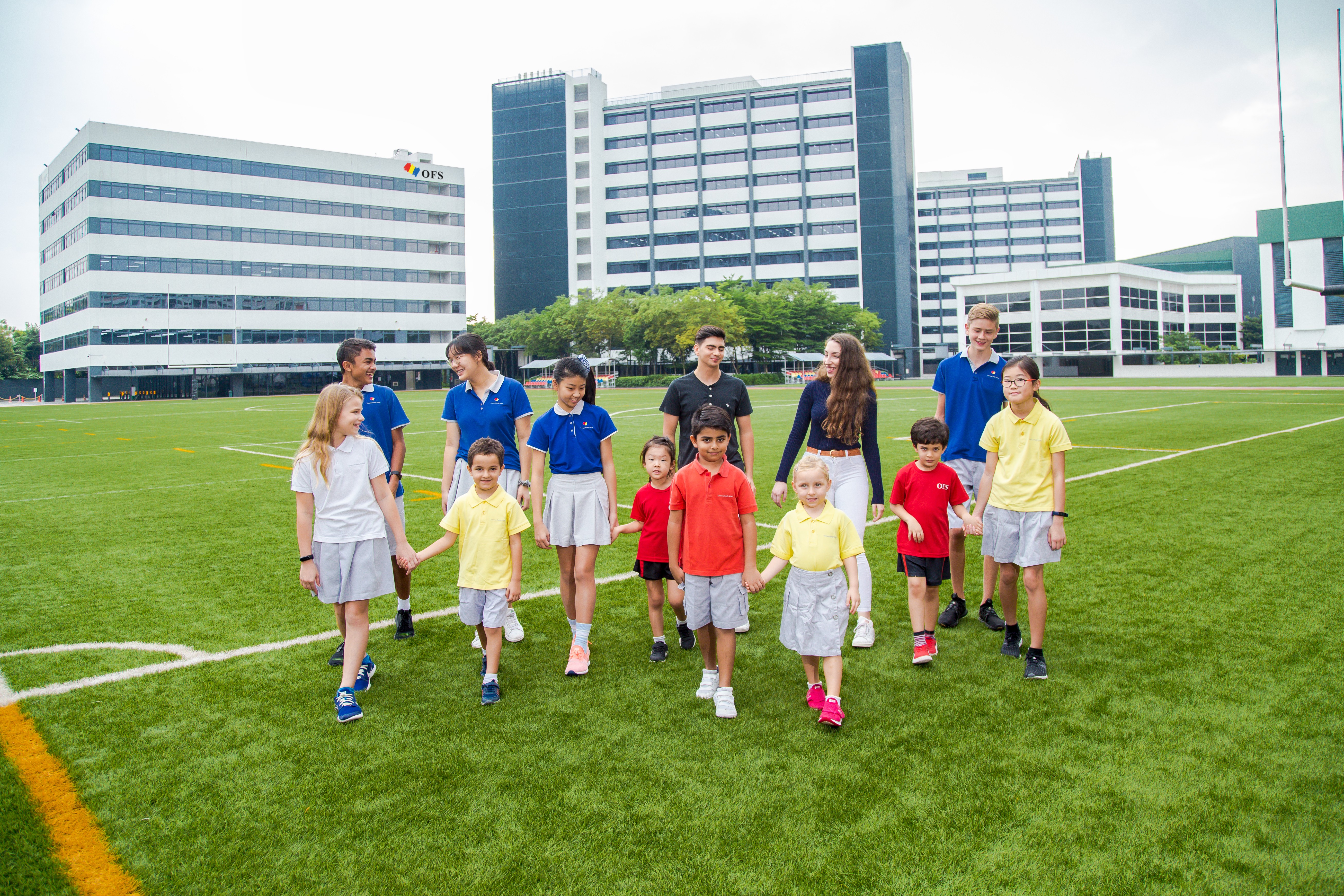
Source: South China Morning Post
-
Location: 81 Pasir Ris Heights, Singapore 519292
-
Website: www.ofs.edu.sg
-
Achievements: In the May 2022 IB exam session, OFS achieved a phenomenal 98% pass rate, with results well surpassing world averages.
St. Joseph’s Institution International

Source: St. Joseph’s Institution International
-
Location: 490 Thomson Road, Singapore 298191
-
Website: www.sji-international.com.sg
-
Achievements: The cohort of 198 students scored an impressive average of 39.3 points.
Stamford American International School Singapore
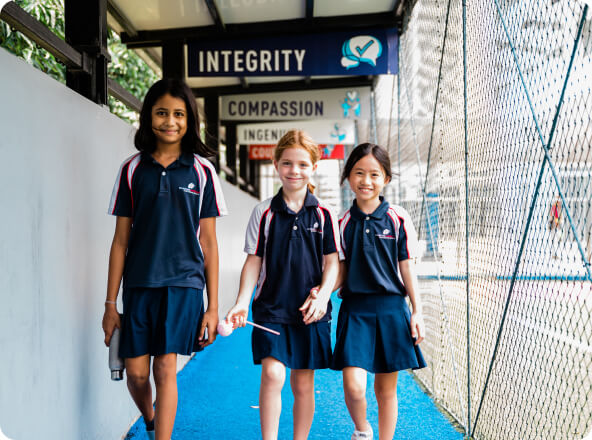
Source: Stamford American International School Singapore
-
Location: 1 Woodleigh Lane (Off Upper Serangoon Road), Singapore 357684
-
Website: www.sais.edu.sg
-
Achievements: 98 percent of the school’s 63 students passed the exam, with an average total score of 35.2.
Tanglin Trust School

Source: Tanglin Trust School
-
Location: 95 Portsdown Road, Singapore 139299
-
Website: www.tts.edu.sg
-
Achievements: This year’s IB Diploma cohort achieved the school’s highest-ever average diploma score of 41.4 points.
Westbourne College Singapore
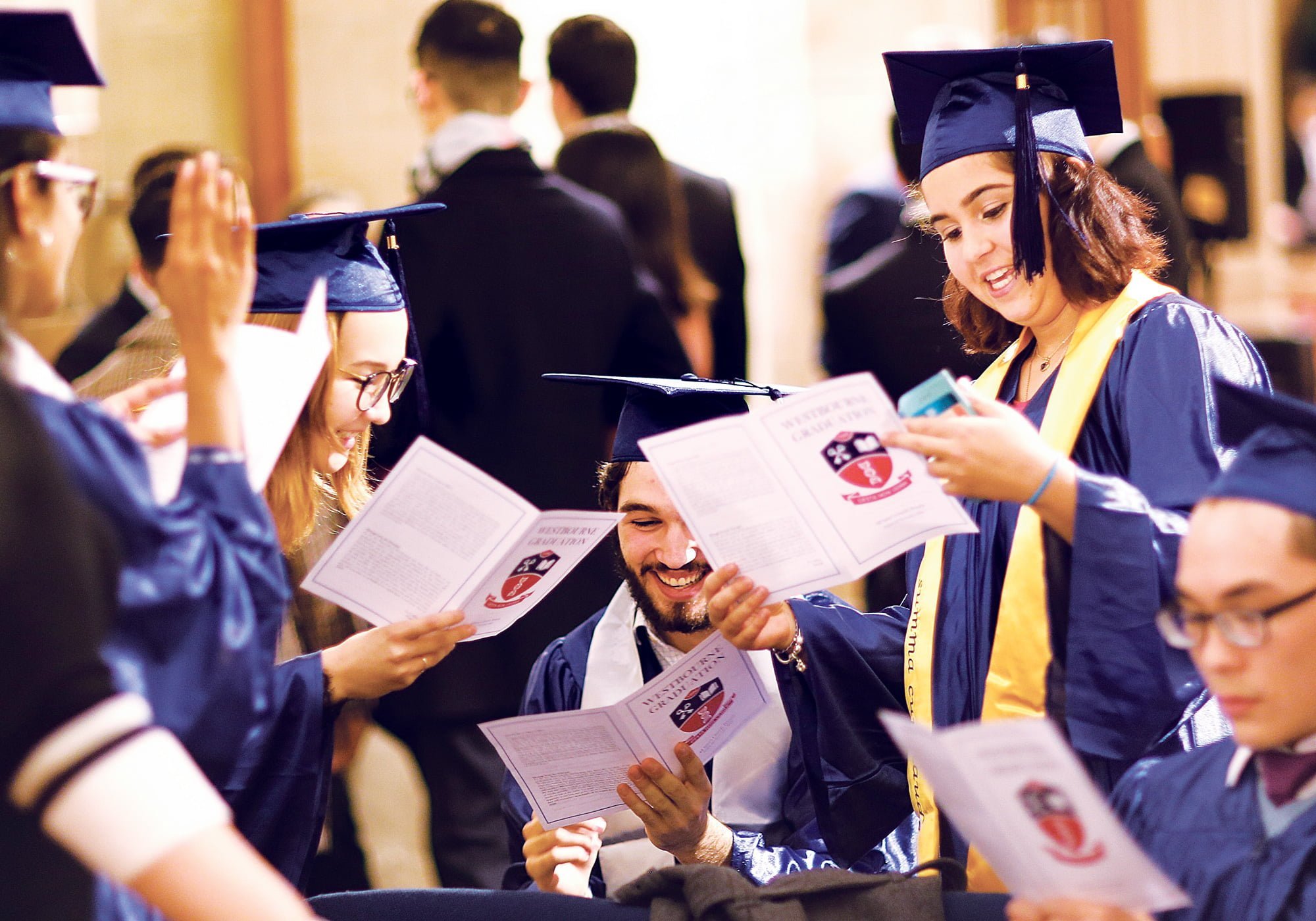
Source: ANZA
-
Location: 491 River Valley Road, #16/03 Singapore 248371
-
Website: www.westbournecollege.com.sg
-
Highlights: Part of a top-ranking UK/AUS IB school group, known for future-focused STEM and business-centric curriculum.
XCL World Academy
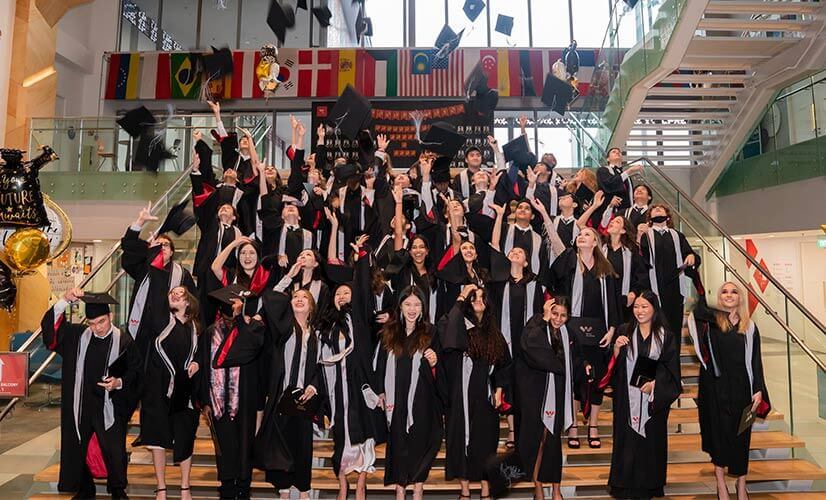
Source: XCL World Academy
-
Location: 2 Yishun Street 42, Singapore 768039
-
Website: www.xwa.edu.sg
-
Achievements: For the second year running, students at this IB school in Singapore have achieved an admirable 100% IB Diploma pass rate and a perfect score of 45.
From Classroom to World: How International Baccalaureate Stands Out in Education
The International Baccalaureate (IB) curriculum is a globally recognized educational program that fosters a unique learning environment. Here, we delve into the aspects that set it apart.
1. International Baccalaureate Emphasizes on Inquiry, Action, and Reflection
At the heart of the IB curriculum lies the principles of inquiry, action, and reflection. It encourages students to question, engage actively in their learning, and reflect on their progress. This approach, therefore, helps students develop essential life skills such as critical thinking, effective communication, self-management, and research.
2. International Baccalaureate Prepares Students for University and Beyond
As the culmination of the IB journey, the challenging and balanced Diploma Programme (IBDP) comes into play. Notably, it includes final exams designed to prepare students for success at university and beyond. Many schools, especially in Singapore, take pride in their outstanding IB results.
3. International Baccalaureate Focuses on Holistic Development
The Primary Years Programme (PYP) of the IB curriculum focuses keenly on the development of the whole child. Interestingly, it encourages children to be inquisitive not just within the confines of the classroom, but also in the outside world. Consequently, the PYP amplifies children’s natural curiosity, creating a powerful learning environment.
4. International Baccalaureate Encourages Creativity and Critical Thinking
The Middle Years Programme (MYP) of the IB curriculum encourages students to become creative, critical, and reflective thinkers. Significantly, it emphasizes intellectual challenge and helps students make meaningful connections between their studies and real-world subjects.
5. International Baccalaureate Promotes Intercultural Understanding and Global Engagement
The IB curriculum proves to be an excellent fit for students in a multicultural environment like Singapore. It effectively boosts their communication skills, intercultural understanding, and global engagement. As a result, the curriculum’s global reach makes it easily transferable, and beneficial for those making international moves.
The Unique Advantages of theInternational Baccalaureate Program in Singapore
- Firstly, let’s talk about Balanced Personal and Academic Achievement. IB programs encourage both personal and academic growth, ensuring a well-rounded education.
- Secondly, there’s Learning How to Learn. Instead of relying on memorization, IB teaches students how to learn through critical thinking and research.
- Thirdly, we have Local and Global Contexts. Students are encouraged to consider both local and global perspectives, fostering a broader understanding of the world.
- Fourthly, we delve into Multilingual Development. IB programs not only promote multilingualism but also enhance linguistic skills and cultural appreciation.
- Next, we transition to Independent Development. It’s important to note that IB curricula are developed independently of government systems and incorporate best practices from schools across the globe.
- Finally, we shift our focus to Cultivating Inquiring Minds. A distinguishing factor of IB schools is their renowned reputation for nurturing inquiring, knowledgeable, and caring individuals, placing a significant emphasis on these characteristics.
-
International Baccalaureate in Singapore
In Singapore, there are a total of 29 IB World Schools. Each of these schools offers one or more of the three IB programmes.
Of these, seventeen schools specifically offer the Primary Years Programme. Following this, a smaller number, 6 schools to be exact, provide the Middle Years Programme. Moreover, a considerable number, 20 schools in fact, offer the Diploma Programme. For those interested in finding out which specific schools offer IB in Singapore, please refer to the linked resource here.
A-levels in Singapore
In Singapore, students possess the choice to undertake the Singapore-Cambridge General Certificate of Education Advanced Level (A-level) exam, a variant of the globally recognized A-level examination.
This particular version is the result of a collaboration between the Ministry of Education (MOE) and the University of Cambridge Local Examinations Syndicate. Notably, the Singapore-Cambridge A-level exam paves the way for Singaporean students to gain admission into both local and international universities.
To give you an idea, some commonly offered subjects at the A-level examination are divided into two groups:
- For those with an inclination towards the Arts, subjects include Economics, Geography, History, English Literature, and Theatre Studies and Drama.
- On the other hand, for those leaning towards Science, options encompass Mathematics, Physics, Biology, Chemistry, Computing, and Geoengineering.
For more information on the A-levels, click here.

Without making an excecutive decision about what’s best for your child in terms of education, also consult with your child’s teachers, and perhaps most importantly, find out what your child would like to do herself.
IB or A-level?
It really depends on your child’s academic strengths. The International Baccalaureate is more about a comprehensive educational style, while the A-levels put more emphasis on individual subject knowledge.
An IB student must take six subjects, three at a higher level and three at standard, which must include maths, science, English, and at least one foreign language. So if words aren’t your child’s strength, then the language component of the IB (including the compulsory 4000-word essay) may pull your child’s overall IB score down.
On the other hand, if your child is well-rounded and copes confidently with Arts subjects as well as Maths and Science, then the IB programme may be ideal for your little learner.
Experts believe the A-levels give a child depth of knowledge, while the IB gives a broad education. They also believe that the IB may prepare a child better for facing the challenges of a university education.
The MOE’s point-of-view
The Ministry of Education (MOE), when questioned about the potential advantage of the IB qualification for university entrance, states that universities internationally recognize both A-Level and IB qualifications as benchmarks. The MOE ensures that the admission process subjects every qualification to an equally rigorous assessment. They do not favour or disadvantage any specific qualification.
Parents, ultimately, you and your child’s teachers have the most insightful understanding of your kid’s academic capabilities. Therefore, if you are contemplating whether the IB would be a suitable fit for your child, it’s advisable to engage in a discussion with your child’s teachers. This collaborative approach will enable you to arrive at an educated and well-informed decision. Additionally, don’t overlook the importance of consulting your child about his or her preferences.
By involving them in the decision-making process, you ensure that their voice is heard and their perspective is taken into consideration.
Furthermore, the IB website serves as a comprehensive resource packed with loads of information that can guide you in making this significant decision.
Do your kids follow the IB programme? Share your experiences with us by leaving a comment.
ALSO READ
Unlocking the Benefits of the International Baccalaureate (IB) Programme in Singapore
Prepare for the Future with Nexus International School
Best International Primary Schools in Singapore to Level Up Your Child’s Education
 Together Against RSV
Together Against RSV SG60
SG60 Pregnancy
Pregnancy Parenting
Parenting Child
Child Feeding & Nutrition
Feeding & Nutrition Education
Education Lifestyle
Lifestyle Events
Events Holiday Hub
Holiday Hub Aptamil
Aptamil TAP Recommends
TAP Recommends Shopping
Shopping Press Releases
Press Releases Project Sidekicks
Project Sidekicks Community
Community Advertise With Us
Advertise With Us Contact Us
Contact Us VIP
VIP Rewards
Rewards VIP Parents
VIP Parents
